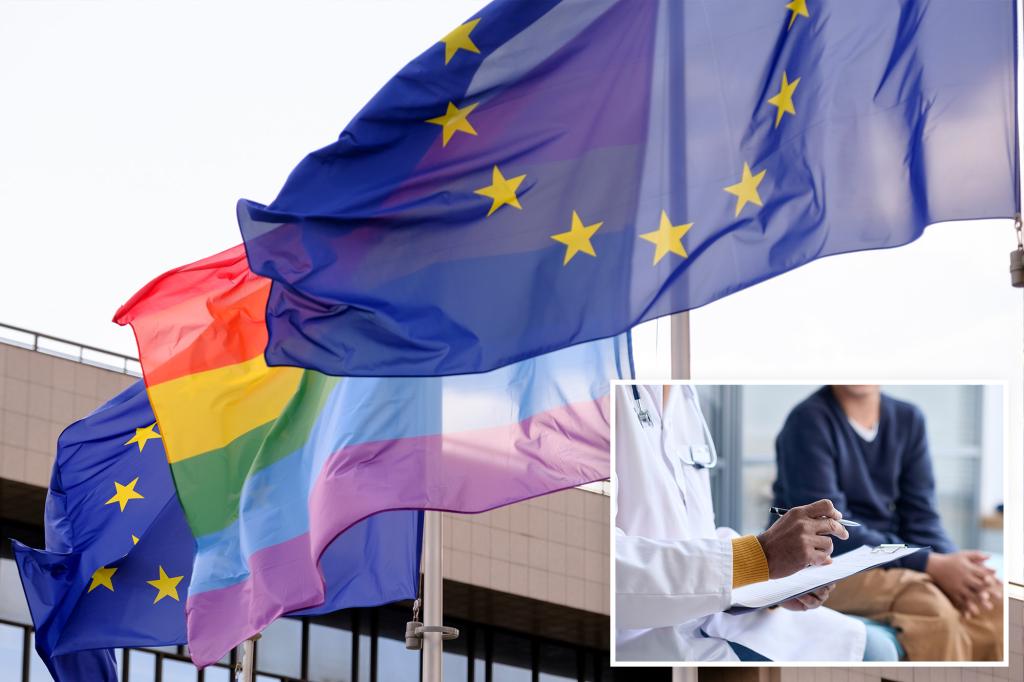The new LGBTIQ+ Equality Strategy 2026–2030 is stirring controversy by proposing that kids can legally pick their gender at any age — no doctors, no red tape.
Under the draft plan, age thresholds for gender recognition would vanish, and the need for therapeutic assessments could be outlawed.
The Commission’s proposal promises to “support the development of legal gender recognition procedures based on self-determination that are free from age restrictions.”
The plan doesn’t stop there: Brussels would also wield the stick, threatening to block EU funds from “discriminating regions” that refuse to fall in line with its values.
The EU proposals only cover legal gender recognition, meaning medical checks and assessments for hormones or surgery would still be required.
The strategy document criticizes member states that ask for medical interventions or doctor approvals before someone can change their gender on legal documents, such as IDs, noting that their rules “vary significantly,” it warns, per The Telegraph.
In place of those rules, Brussels says it will “facilitate exchanges of best practices” to help countries adopt self-ID systems without age caps.
It also targets therapies meant to question a child’s chosen identity. Under the new rules, such “talking therapy”— intended to probe whether a youth is certain about a gender change — might be banned entirely.
Of the EU’s 27 member states, only nine currently embrace self-identification without medical hurdles. Twelve still mandate expert input.
In the UK, children can begin gender-affirming hormones at 16, but must wait until 18 to alter their legal gender on records.
Women’s rights and sex-based rights advocates are sounding alarms. Maya Forstater, chief executive of Sex Matters, calls the plan “chilling.”
She told The Telegraph: “This chilling EU-wide strategy pushes legal gender self-identification for children of any age and a ban on talking therapy for vulnerable children.”
She added: “It is a mercy that British campaigners for sex-based rights don’t have to deal with this sinister strategy… Gender activists have entrenched their ideology in European institutions with devastating consequences for women and girls, vulnerable children, and gay and lesbian people.”
Similarly, Faika El-Nagashi, founder of the Athena Forum, accuses Brussels of codifying trans-activist demands.
According to the activist, “It is outrageous that … the commission blatantly centers a push for self-ID laws without age restrictions across Europe … and seeks to embed gender-identity ideology across virtually every policy area, including, crucially, women’s rights.”
El-Nagashi warns the move exemplifies how “gender identity ideology has been smuggled into European institutions through soft law” without democratic debate.
Critics seize on the irony: Brussels championing identity freedom, while threatening to cut funding to countries that dissent.
Some British feminists see this as vindication for Brexit — at least the U.K. wouldn’t be forced to comply with these sweeping rules.
Supporters argue the strategy builds on existing efforts. The Commission first launched its LGBTIQ equality plan for 2020–2025 to combat discrimination and promote inclusion across the EU.
The new draft would extend that vision and anchor it more deeply into national policies.
Human Rights Watch has urged that the 2026–2030 strategy include robust global engagement, not just internal reforms.
For now, the proposals are not binding — they must be approved and implemented by national governments.
But Brussels is already calling them a template for the future. In fact, the EU is holding an open consultation, soliciting feedback from citizens, NGOs, and governments alike.
As previously reported by The Post, nearly 14,000 American minors nationwide received medical treatment for gender dysphoria between 2019 and 2023, according to data compiled by advocacy group Do No Harm.
The group’s searchable database, “Does My Hospital Transition Kids?”, maps 225 children’s hospitals that provide gender-affirming care.
Researchers found 5,747 minors underwent surgery and 8,579 were prescribed puberty blockers or hormones — with total insurance claims topping $119 million.
California led the nation with 1,359 surgeries, while New York logged 1,154 child patients, including 616 surgeries costing nearly $19 million statewide.
Read the full article here

